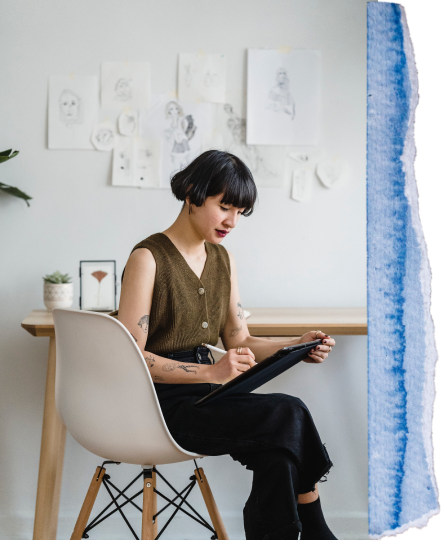Whenever I encounter someone new and share about the work that I do, I’m usually met with one of two reactions: 1) appreciation or 2) curiosity. I tell them I want to build a zero waste world, that I think about trash all day, and that every facet of sustainability is interconnected. If they already know that waste is an issue, they’ll express some relief and gratitude that there are people working on the problem. They’ll often tell me I’m “one of the good ones.” On the other hand, if they’ve never thought deeply about what goes in their trash cans and why, they might lean in to learn more. They’ll ask if I ~really~ dig through people’s trash for work. (And yes. Yes, I do.)
These two types of people have one thing in common: they will do their best to show me they care about the environment and the work that I do by listing off all the eco-actions they take in order to be a good citizen. They recycle. They shop secondhand. They planted a tree with a volunteer group last fall. I become a sort of confessional for all their eco-guilt. I’m not sure this happens with many jobs other than the ones related to sustainability. I’ve never met an accountant before and felt the need to tell them I always pay my taxes. I’ve never met a teacher and had the urge to share that I (almost) always did my homework growing up and even went the extra mile to take opportunities for extra credit. So why do we feel the need to admit to everything we do or don’t do when it comes to sustainability? Once this behavior became a pattern, I knew I needed to start finding ways to address it.
As a society of consumers, we have some deep feelings of guilt and shame that surround the topic of sustainability. As explained by Brené Brown, there is a distinct difference between guilt and shame. “Shame is a focus on self, guilt is a focus on behavior. Shame is “I am bad.” Guilt is “I did something bad.” There is this desire of wanting to be “good” when it comes to conversations about sustainability. I find it necessary to make it clear that you don’t have to be “good” at sustainability to include yourself in the zero waste movement or the sustainability world at large. Let me repeat that. You do not have to be “good” at sustainability to include yourself in the zero waste movement or the sustainability world at large.
Strong emotions can be effective in driving behavior change but this might not be the change that will get us where we need to go. When we allow guilt and shame to be all-consuming, it leads to feelings of anxiety, perfectionism, and analysis paralysis. It also unhelpfully focuses the blame on individuals while ignoring the impact of systems that aren’t set up for us as consumers to prioritize sustainability.
It’s time to place your eco-guilt in the compost and try a different approach.
Achieving true sustainability requires a shift in our systems and a departure from the status quo. Change makes us uncomfortable but we have to leave our old ways behind on our journey towards something better. Instead of using our limited capacity to beat ourselves up over what more we can do on an individual level, let’s redirect that energy towards those systemic roadblocks that stand in our way.
This is not to say that we shouldn’t continue to make progress with our individual behaviors. But that can’t be where the conversation ends. We have to counter the guilt and shame by being vulnerable with ourselves and with others. We have to admit to ourselves that we don’t have all the answers and we aren’t always able to make the choices that we’d like to, but we’re committed to figuring it out. We all have different interests, values, capacities, and knowledge of social and environmental issues. It is possible for each of us to make sustainable shifts that make the most sense given our diverse circumstances and commit to practicing them every day.
It’s easy to get caught up in the chaos of what we can’t control to the point where it feels insurmountable. Instead, let’s try zooming out to get a better look at the full picture. Instead of spinning our wheels, let’s shift our attention to imagining what a sustainable world could look like. It’s common to get stuck thinking if more people knew about <insert climate change-causing issue here> that more people would take action and do something about it. I’d like to make the argument that the issue isn’t a lack of knowledge surrounding climate change that has led us to our current circumstances, but rather a lack of understanding of how to best align our intentions with our actions.
If you’re looking for some inspiration, check out this replay of an Instagram Live I co-hosted earlier this year with my friend Emily Wright where we took some time to embody our vision for the year 2050. Where do we see ourselves in 30 years? What do we need to learn more about? What can we teach others? What investments need to be made in the solutions we want to see? What resources are already available to us? What tools do we need to create? By moving past our shame and guilt and asking these questions, we can and will get closer to bridging the gap between where we are and where we want to be.
“When something can’t be fixed then the question is ‘What can we build instead?’”
Mariame Kaba
All Our Writings
ROAD to zero waste course




